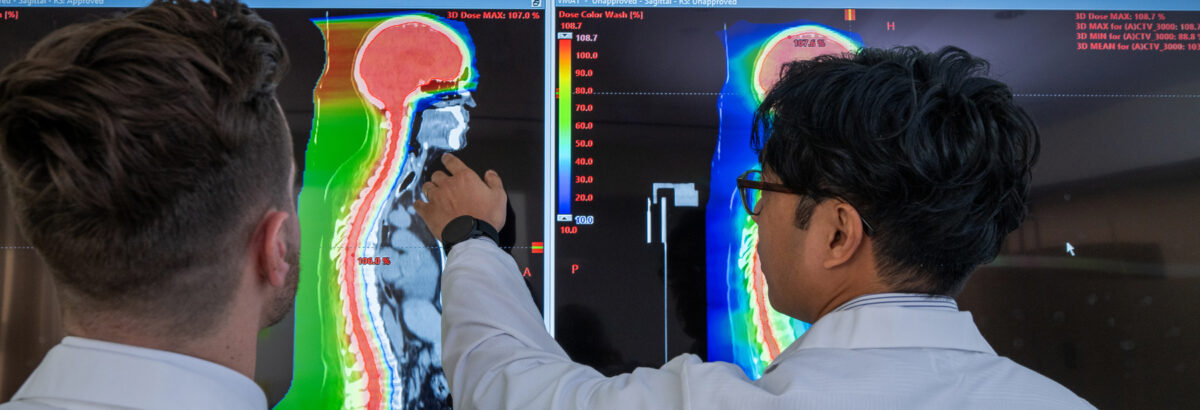Unmatched Precision in Radiation Therapy
For tumors occurring in or near the spine, conventional radiation carries risk. It can release excess radiation into the nerves and tissue that control your ability to move and feel.
With its pinpoint precision, proton therapy can release an optimal radiation dose into the spinal tumor while minimizing damage to vital, healthy cells, potentially preventing long-term side effects from treatment and offering higher chances of controlling the tumor.
Spinal Tumors We Treat Include
- Chordomas
- Chondrosarcomas
- Desmoid tumors
- Ependymomas
- Sarcomas
- Recurrent spine tumors
Resuming a Normal Life After a Spinal Tumor
Pencil beam scanning proton therapy reduced excess radiation to healthy tissues and organs near Sara’s spine.
Pencil Beam Scanning at the New York Proton Center
Patients at our center receive pencil beam scanning, a highly sophisticated and the most modern form of proton therapy. It uses an extremely narrow beam of protons to “paint” the intended radiation dose onto the tumor. The technology can target specific parts of the tumor with different radiation dose levels, while better protecting the surrounding normal tissues from irradiation.
Not All Proton Therapy Is Created Equal
Many other proton centers use “volumetric” beams that deliver a fixed quantity of energy to the entire tumor. But the pencil beam scanning technology at the New York Proton Center delivers “intensity-modulated proton therapy,” or IMPT.
Widely considered the most advanced form of proton therapy, IMPT can target different parts of the tumor with different radiation dose levels based on the prescription and the tumor’s exact location, while better protecting the surrounding normal tissues from irradiation. That’s particularly valuable when treating the most complicated tumors, those residing in the fissures of the head, neck and skull base.



